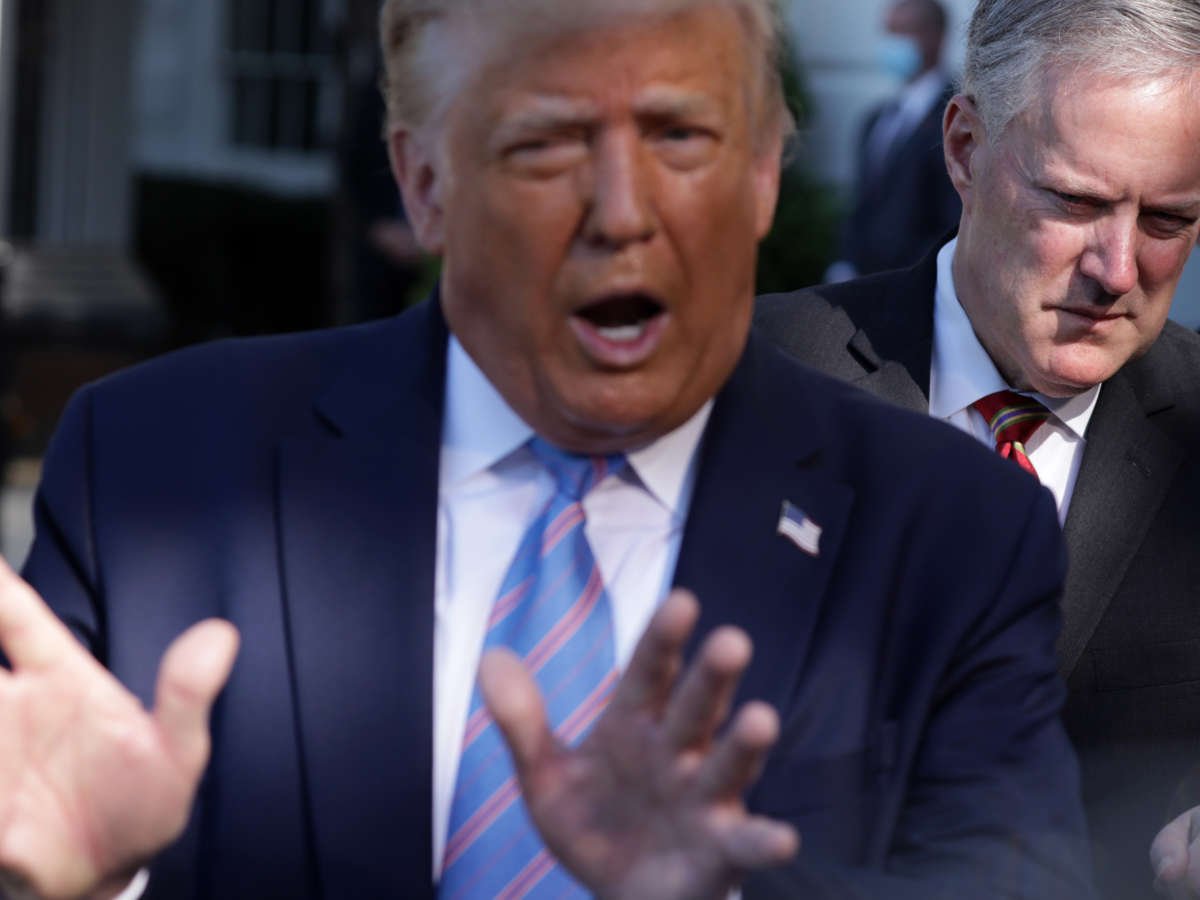Text messages sent from a former Georgia state aide to former President Donald Trump’s Chief of staff Mark Meadows detail how exasperating and appalling Trump’s demands to overturn his loss in the state truly were to those listening to his rantings on a phone call in January 2021.
The call, which took place before the January 6, 2021, attack on the United States Capitol building, involved Trump, Meadows, and other White House aides on one end, and Georgia Secretary of State Brad Raffensperger (R), his legal counsel, and other aides at the other.
During the conversation between the two sides, Trump, citing unfounded and disproven claims of election fraud, demanded that Raffensperger and other election officials “find” him 11,780 votes — the exact number he needed in order to overturn the win in the state by President Joe Biden. Raffensperger explained to Trump he didn’t have the authority to do so. Trump, meanwhile, made a number of comments during the conversation — including suggesting Raffensperger and his lawyer could face legal repercussions for refusing to help him — that Raffensperger later said felt like threats made toward him by the former president.
According to a recent court filing, some of Raffensperger’s aides, though silent on the call, were busily texting Meadows during the conversation, urging him to discontinue the call and the demands from Trump.
“Need to end this call. I don’t think this will be productive much longer,” wrote Raffensperger aide Jordan Fuchs to Meadows.
Eventually, Meadows did finish the call, after which Fuchs, who was then serving as deputy secretary of state, texted Meadows once more. That final message suggests Fuchs had viewed the call as being especially draining.
“Thank you. Wow,” she wrote to Meadows.
The text message conversation between Fuchs and Meadows may eventually be entered as evidence in Fulton County District Attorney Fani Willis’s investigation into the call. Willis has convened a special grand jury to help her inquiry, to determine if any state laws were broken when Trump and his White House staff tried to get Raffensperger to cooperate with them to overturn the election results.
On Monday, that grand jury was officially seated, with 26 individuals — 23 members of the grand jury itself and three alternates. The grand jury will remain in place for up to one year, starting this week, though the jury’s work won’t officially begin until June, after state primary election races occur later this month.
Although it’s unclear what, if any, charges the special grand jury could eventually recommend to Willis, the investigation appears centered around Trump’s comments during that phone conversation. By telling Raffensperger to “find” him votes — and furthermore, by suggesting the Georgia secretary of state could face repercussions for not doing so — Trump may have violated a Georgia state law that says it’s illegal to coerce state election officials to engage in election fraud.


